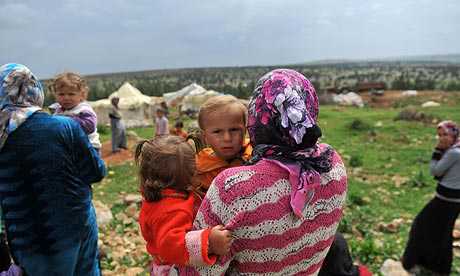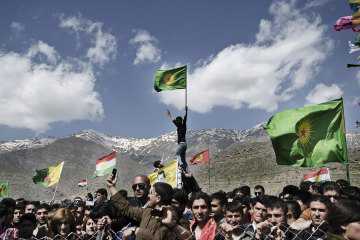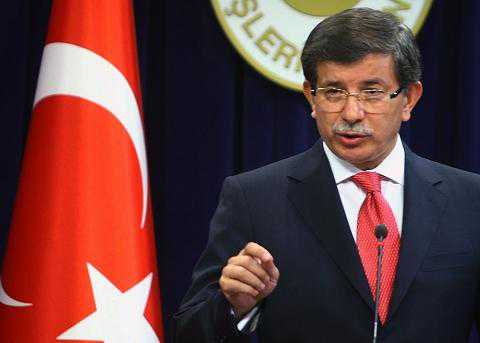Turkish FM denies reports of forced evacuations, says 50-60 Syrians returned voluntarily; UNHCR reports riots in Jordan refugee camp.
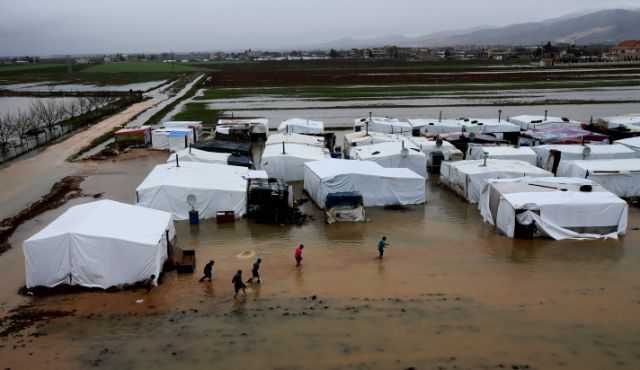
Syrian refugees make their way in flooded water at a temporary refugee camp, in the eastern Lebanese town of Al-Faour near the border with Syria, January 8, 2013. Photo by AP
Turkey deported at least 600 Syrians staying at a refugee camp near the border after they clashed with Turkish military police in a protest over living conditions, a Turkish official said on Thursday in remarks disputed by the country’s foreign ministry.
“These people were involved in Wednesday’s violence, they were seen by the security cameras in the camp,” an official in the camp told Reuters by telephone. “Between 600 and 700 have been deported. The security forces are still looking at the footage, and if they see more they will deport them.”
Turkey’s foreign ministry, however, denies forcibly deporting the Syrians and said about 50-60 had returned to Syria voluntarily.
“Some people have returned since last night, the numbers are closer to 50 or 60, and yes some of these may have been involved in the provocations from Wednesday but they returned of their own free will,” foreign ministry spokesman Levent Gumrukcu said on Thursday.
The United Nations refugee agency voiced deep concern on at the reports of mass deportations of Syrians from Turkey and said it had taken up the issue with Turkish authorities.[1]
“UNHCR is very concerned with reports of a serious incident and allegations of possible deportations from Akcakale Tent City in the past 24 hours,” Melissa Fleming, chief spokeswoman of the UN High Commissioner for Refugees (UNHCR), told Reuters.
Meanwhile, the UN refugee agency is reporting that a riot broke out at a refugee camp for Syrians in Jordan after some of the refugees were told they could not return home.
Ali Bibi, a UNHCR liaison officer in Jordan, says it’s unclear how many refugees were involved in Thursday’s melee at the Zaatari camp. The riot broke out after some Syrians in the camp tried to board buses to go back to their country.
He says Jordanian authorities refused to let the buses head to the border because of ongoing clashes between the rebels and President Bashar Assad’s forces in southern Syria, just across the border from Jordan.
Bibi says there were no immediate reports of injuries. He says Jordanian authorities promised to organize the refugees’ return home at another time.
In Damascus, activists say Syrian rebels are attacking army checkpoints in and around a key southern town that is a gateway to the capital. The Britain-based Syrian Observatory for Human Rights says rebel attacks are under way in Dael and surrounding areas.
The Local Coordination Committees, another activists group, says regime bombardment of Dael killed at least three people on Thursday. Dael lies in the strategic Daraa province, which borders Jordan.The fighting comes as Mideast powers opposed to President Bashar Assad have stepped up weapons supplies to Syrian rebels in coordination with the U.S. in preparation for a push on the Syrian capital.
That’s according to officials and military experts who spoke to the Associated Press in Jordan. The UN says Syria’s two-year civil war has killed more than 70,000 people.
via Turkey deports 600 Syrian refugees following protest over living conditions, official says – Middle East – Israel News | Haaretz Daily Newspaper.

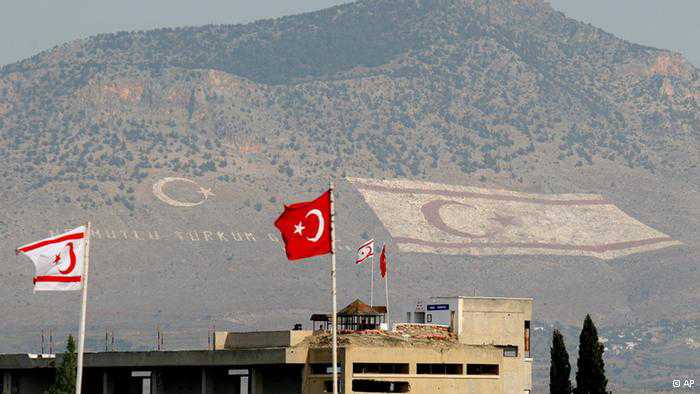
 Capital controls limited withdrawals to 300 euros
Capital controls limited withdrawals to 300 euros Trucks loaded with money ensured banks had cash for customers
Trucks loaded with money ensured banks had cash for customers Cyprus – like other EU nations – has felt the eurozone crunch
Cyprus – like other EU nations – has felt the eurozone crunch